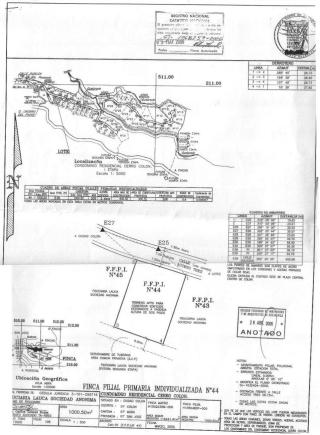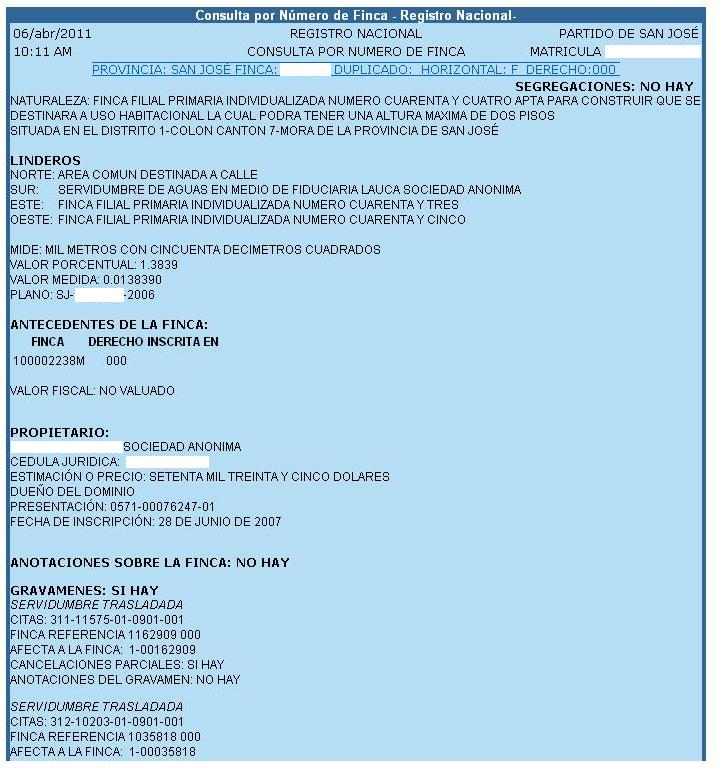Estimated Reading Time: 10 minutes
It is important to know, for all parties involved, what the role of the real estate agent is in the purchase process. When you plan to purchase a property in Costa Rica you will probably contact a Realtor to help you find the right property. Doing so makes you want to hire the best and most qualified Realtor.
Buying a home is one of the most significant financial and emotional investments many will make in their lifetime. And it’s even more complex in a foreign country, where the market behaves differently, the language is another, and real estate law varies from yours. Navigating the complexities of the real estate market, legal requirements, and negotiation tactics can be daunting for most buyers. This is where a skilled real estate agent becomes invaluable. As a guide, advisor, and advocate, a real estate agent is pivotal in ensuring a smooth and successful purchase process.
Many real estate agents in Costa Rica don’t get involved in the closing process, which is a mistake. You can recognize a good real estate agent when he/she is involved in constant communication and coordination between the parties involved during the entire real estate purchase process: the Buyer, the Seller, and the closing Attorney.
This article highlights the responsibilities of the parties involved in the real estate closing process. This will help the buyer and seller better understand the process.

To be able to describe the exact role of the real estate agent, we first have to find out the following:
Does the Realtor work for the Seller or the Buyer?
In our country, a real estate agent often represents both, called a dual agent. or double-dipping. Having a real estate license is not mandatory here, and even licensed agents often don’t have a clue what they’re doing. Being pretty or handsome and knowing what a kitchen looks like should not be enough for a serious buyer. So, do your homework before you contact an agent, but do not shop around with many agents. Then you’ll never have anyone to represent you, the seller.
In most cases, the seller pays the Real Estate Commission. In my opinion, real estate agents should clarify from the outset which party they are acting for.
Understanding the Market
A real estate agent’s primary responsibility is understanding the local housing market. This includes staying informed about current trends, property values, and neighborhood specifics. This expertise means access to valuable insights that help buyers decide where and when to buy. Agents can recommend neighborhoods that align with a buyer’s lifestyle preferences, budget, and long-term investment goals.
What the Listing Agent Should do
Taking the Property listing
If the agent is involved in taking a property listing, this agent has the role of the listing agent. The agent should request from the Seller as a very minimum a current property survey map (plano catastrado) and the property and ownership information. With the Folio Real (property number) and the name of the owner (or the corporation), based on this information, the Realtor should get a property title report before listing the property (informe registral).
This is what a survey (of a lot in a gated community) looks like:

This information is available online from the National Registry website. With this information, the real estate agent should verify that the property to be listed and offered is free of any liens or annotations. If not, the title would be unmarketable.
This is what an online property title search in the National Registry looks like (I deleted the ownership and property number):

Check for Liens
It’s surprising how often a real estate agent comes to the buyer’s attorney ready for closing, only to discover that the property has a Lis Pendens – lien – or some other defect that foils the sale.
When this happens, all the valuable efforts in advertising and showing the property are wasted. Worse, the buyer might have fallen in love with a property that cannot be sold or has legal problems. In this case, the role of the real estate agent has been mistaken, and all effort was in vain.
Best Procedure
The best procedure is for a Real Estate Agent to check the legal status of the property BEFORE listing and showing it. Also, the real estate agent should clearly understand the property they are listing. The agent should look at the boundaries with the plot map in hand. The role of the real estate agent is also to look at easements and other annotations like forest reserves and river setbacks.
It is quite common for an agent to take the title information off of the property survey map and assume that it is the current title number. This might not be the case. Sometimes, a property owner starts with a large tract of land and then segregates pieces from that property. Each new segregation will spin off a new title number and a new corresponding survey plat number. Then, the original survey map and title number will be outdated. So, the agent needs to be sure to have the correct survey map and the correct property title number.

Verify Ownership
With the property title report, the Realtor can also verify the record owner of the property. The most typical forms of ownership are:
(a) Personal ownership.
This is where the property is owned in the personal name of one individual.
(b) Joint Ownership.
This is where one or more individuals own the property jointly, and each has an undivided interest in the property. This is locally referred to as derechos.
(c) Corporate ownership.
This is a property titled in the name of a corporation. In this form of ownership, the real estate agent should verify with the Seller that he/she has the authority to act for the corporation. Ideally, the Agent should procure a copy of the corporate documents from the seller.
Check Zoning if Applicable
Is the Agent selling raw land that the Buyer will use for construction? Then, obtaining a Zoning Use [Uso de Suelo] from the Municipality where the property is located is essential. This will ensure that Buyers can use the property as they intend. Some properties have use restrictions and construction coverage limitations. The Real Estate Agent should be aware of these so they can explain them to the Buyer. See a sample of Zoning Use [Uso de Suelo] below:
What the Buyer’s Agent Should Do
Often, buyers’ agents assume they just have to accompany the buyer during the showings and nothing else. This is incorrect. The buyers’ agent has a different role than the listing agent and must cover much ground.
Facilitating Property Showings
Unfortunately, we don’t have an MLS here, so buyers and their agents must shop around on many websites. We also don’t have lockboxes. That means the buyer’s agent must contact all the listing agents and organize the showings. You’ll often find the sellers present during the showing.
So, the buyer’s agent coordinates property showings, allowing buyers to explore potential homes conveniently and organizedly. They must accompany buyers during these visits, providing insights about the property’s condition, features, and possible drawbacks. Agents can also point out aspects buyers may overlook, such as structural issues, outdated systems, or zoning restrictions, ensuring a comprehensive property evaluation.
Negotiate Price, Terms, and Conditions of the purchase
Generally, the Buyers Agent spends most of the time with the Buyer showing properties. The buyer’s agent negotiates the price, terms, and conditions of the sale with the assistance of the Listing Agent.
Negotiation is where a real estate agent’s skills truly shine. Once a buyer finds a property they want to purchase, the agent works to secure the best possible terms. This includes negotiating the purchase price, contingencies, and any requested repairs or concessions. With their expertise, agents help buyers navigate this often complex phase, ensuring their interests are protected while maintaining a fair and professional relationship with the seller.
I recommend that a Buyer’s Agent use a written offer. In that offer, it is essential to establish an agreement on the price, terms, and conditions. Then, have this Offer to Purchase signed by both parties. This, in turn, can be used as basic information for the Closing Attorney to prepare the official Purchase Contract.
Preparing the Offer to Purchase
Many agents use their particular form to prepare the seller’s offer. The offer must be short and concise so the buyer’s attorney can use it to draft the option to purchase agreement.
The most typical pre-sale contracts in Costa Rica are the Reciprocal Promise to Buy and Sell (Promesa Recíproca de Compra Venta) and the Opción de Compra (Purchase Option). These contracts do not formally transfer the property title from the Seller to the Buyer yet. They set out the terms and conditions that must be satisfied before closing and establish the obligations of both the Buyer and Seller during the transaction’s due diligence period.
We recommend that the agent pay special attention to transactions that include an inventory in a house. Also, those that require specific construction or repairs to be done to a dwelling before closing. This must be spelled out in detail so that each party knows what to expect. We have seen Purchase Agreements that result in bickering and fighting at the closing table because the Buyer expected more than the Seller thought he had to give.
Work together
As soon as both parties accept the offer, it becomes important that both the listing agent and the buyers’ agent work together. If only one agent is involved in the transaction, the following tasks must be fulfilled diligently and on time. Often, real estate agents do not understand that all the following tasks are the role of the real estate agent and not the attorney’s:
Offering Emotional Support
Buying a home can be an emotional rollercoaster, especially for first-time buyers. A real estate agent acts as a steadying presence, offering reassurance and perspective during moments of doubt or stress. Their experience and calm demeanor help buyers stay focused and make rational decisions.
Setting the closing date
Since the buyer’s agent has the most contact with all parties, the agent should coordinate the closing date. It’s almost impossible to close faster than 30 days because this time is needed for due diligence.
Ensuring a Smooth Closing Process
The final stage of the home-buying process, closing, involves coordinating multiple parties, including lenders, escrow companies, and attorneys. Real estate agents oversee this process to ensure all deadlines are met, documents are in order, and any last-minute issues are resolved. Their involvement minimizes delays and provides a seamless transfer of ownership.
Coordinating Inspections and Due Diligence
The listing agent and buyer’s agent should coordinate the required pre-closing documents for the due diligence well before the closing date. The agents should also coordinate the services of those professionals required to complete the due diligence and/or conditions outlined in the Purchase Agreement.
i. Utilities.
Ensure the Seller is current with paying all utilities: Electric, Water, Cable TV, and Internet. Changing your name is much easier if you like the cable/internet company the seller uses.
ii. Property and other Taxes.
Make sure the Seller has paid all the pending taxes. If applicable, these should include property, corporation, and luxury home taxes (see below). The listing agent should ask the seller to produce a receipt and a certificate from the Municipality that the property is current on property tax payments.
Please don’t wait until they are at the closing table for the Seller to tell you that he hasn’t paid the taxes.
iii. Condominium Sales.
The role of the real estate agent is very important, especially in a condominium sale. Often, condo administrations do not cooperate, and this part of the due diligence is quickly forgotten.
When the sale of a condominium is involved, the HOA must provide a copy of the CC&Rs or bylaws (Reglamento del Condominio). Also, the Condo Association must deliver, indicating that the condo unit to be purchased is current with all fees and assessments. I would also like to see a copy of the financial statements and the last 2 or 3 minutes of the HOA meetings of the condominium to look at its financial situation. After all, when purchasing a condo, the buyer also inherits the association. Therefore, the buyer would not want to inherit their liabilities.
iv. Home Inspections.
Often, the Purchase Agreement specifies that a home inspection must be prepared before closing. The Real Estate Agent should coordinate the inspection with the Home Inspector and the Seller to ensure it is done well in advance of closing. This way, the Seller has ample time to correct any deficiencies that would delay closing. Then, a second home inspection can be done if wanted before closing.
v. Review of Home Inventory.
If the property for sale includes an inventory list, it is very important that the real estate agent adequately describes and lists each item included in the sale. Before closing, the Agent and the Buyer should inspect the home again (walkthrough) to ensure that the items described in the inventory list are as warranted. You would be surprised how many misunderstandings arise at closing because of a poorly drafted and detailed inventory list.
vii. Escrow
Escrow is a financial arrangement where a third party temporarily holds money, property, or other assets on behalf of two parties involved in a transaction until certain conditions are met. The escrow agent or company ensures that both parties fulfill their obligations before releasing the assets, providing security and trust in the transaction.
Before closing, the buyer deposits the earnest money and the purchase price balance into an escrow account. The escrow agent disburses the funds to the seller, the commission payment to the involved real estate agents, and the transfer taxes and professional fees to the closing notary public.

Conclusion
A real estate agent is more than a middleman in the home-buying process—they are advocates, experts, and problem solvers. By leveraging their knowledge, experience, and network, agents empower buyers to make confident decisions and secure the home of their dreams. Having a reliable real estate agent by your side is invaluable for anyone navigating the complexities of purchasing property.
Main image from Freepik.


















